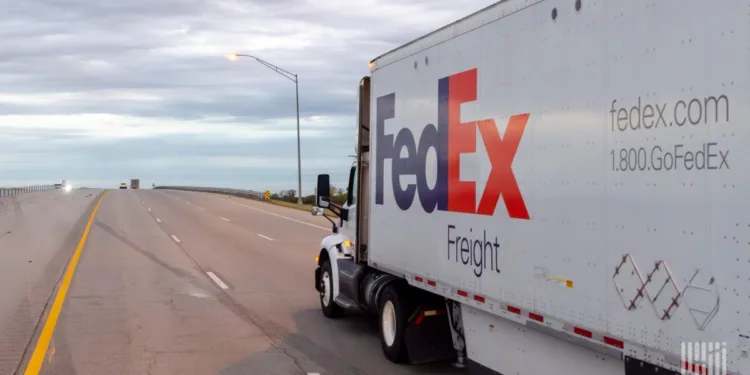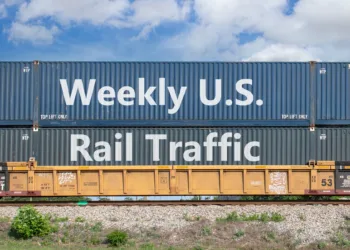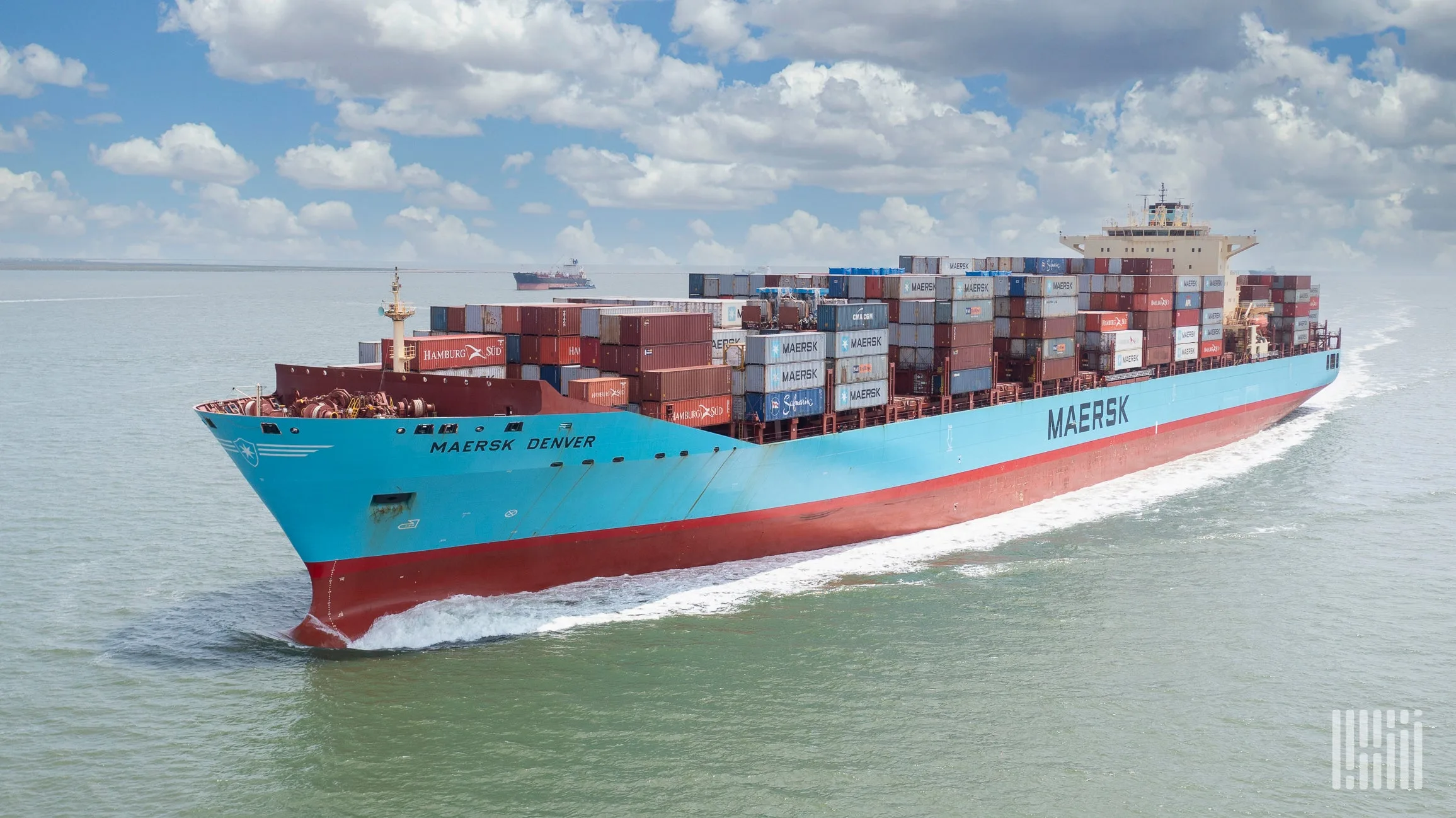FedEx’s decision to spin off its LTL unit marks the end of an era that began nearly 30 years ago when major parcel carriers sought to provide comprehensive transportation solutions for their customers. This strategic shift reflects a changing landscape in the logistics industry and a return to core competencies for FedEx.
The journey began in the mid-1990s when FedEx acquired Viking Freight, a regional LTL carrier operating primarily in the Western United States. This move was soon followed by the purchase of American Freightways in 2001 for $1.2 billion, which expanded FedEx’s LTL presence into the Midwest, South, and Northeast. These acquisitions were rebranded as FedEx Freight in 2002, creating a nationwide LTL network that complemented FedEx’s existing parcel services.
At the time, the strategy made sense. FedEx aimed to offer customers a one-stop-shop for all their shipping needs, from small packages to full truckloads. This approach mirrored that of its chief rival, UPS, which had acquired Overnite Transportation in 2005 for $1.25 billion to establish its own LTL division.
The idea was that by providing a full suite of transportation services, these companies could capture more business from their existing customers and attract new ones seeking simplified logistics solutions. It also allowed for potential synergies between different shipping modes and the ability to cross-sell services.
However, the landscape of the transportation industry has evolved significantly since those early acquisitions. The rise of e-commerce, changing customer expectations, and the increasing complexity of global supply chains have reshaped the market. Additionally, the LTL sector itself has become more competitive, with companies like Old Dominion Freight Line and XPO Logistics emerging as strong players focused solely on LTL operations.
FedEx’s decision to spin off its freight division follows a trend seen in the industry. In 2021, UPS sold its LTL business, UPS Freight, to TFI International for $800 million — a move that signaled a shift away from the integrated service model. Similarly, XPO Logistics has undergone its own transformation, spinning off its contract logistics business (now GXO Logistics) and its brokerage operations (now RXO) to focus primarily on LTL.
Similar strategic choices have been taking shape within the industry, reflecting a broader realignment. One such example is UPS’s acquisition of Coyote Logistics and its eventual sale to RXO. In 2015, UPS purchased Coyote Logistics for about $1.8 billion. The acquisition was part of UPS’s strategy to strengthen its position as a comprehensive logistics provider, augmenting its existing capabilities with Coyote’s asset-light freight brokerage services.
However, much like FedEx, UPS eventually shifted its focus back to its core competencies. As part of a strategic transformation to become the premium small-package logistics provider, UPS announced the sale of Coyote to RXO Inc. for $1.02 billion, a move designed to better align with its focus on small-package delivery. This deal, finalized in 2024, allowed UPS to concentrate resources on its primary business operations while divesting from an area that diverged from its strategic priorities.
This sale mirrors the industry’s ongoing trend of divesting non-core segments to focus on areas of stronger expertise or higher growth potential. The UPS-Coyote-RXO transaction further exemplifies how logistics giants are reshaping their portfolios to adapt to the dynamic market landscape and increasingly competitive environment. As FedEx and UPS fine-tune their business models, these strategic realignments underscore a pivotal shift towards specialization across the logistics industry.
The rationale behind these moves is clear: companies are finding greater value in specializing rather than diversifying. For FedEx, the spin-off allows it to concentrate on its core parcel and express delivery services, where it faces intense competition from UPS, Amazon, and other players. By divesting the LTL business, FedEx can allocate more resources to areas like e-commerce fulfillment, international expansion, and technological innovation in its primary operations.
The LTL business, while profitable, operates on different dynamics compared to the parcel sector. It requires a distinct operational model, separate infrastructure, and often serves a different customer base. By spinning off FedEx Freight into a standalone company, it can potentially unlock value for shareholders and allow the LTL division to pursue its own growth strategies without being tied to the broader FedEx corporate structure.
This decision also reflects the evolving preferences of customers. While some shippers still value integrated services, many have become more sophisticated in their logistics operations and prefer to work with best-in-class providers for each mode of transportation. This shift has reduced the perceived advantage of offering a full suite of services under one corporate umbrella.
The spin-off of FedEx Freight, expected to be completed within the next 18 months, will create a new publicly traded company that will be a major player in the LTL market. With annual revenue of approximately $9.4 billion, the new entity will have the scale and resources to compete effectively in the LTL sector.
For the logistics industry as a whole, this move signifies a broader trend towards specialization and focus. It suggests that the era of mega-carriers attempting to be all things to all shippers may be coming to an end. Instead, we’re likely to see more companies honing in on their core strengths and seeking to excel in specific areas of the supply chain.
As the dust settles on this latest industry shakeup, it’s clear that the transportation landscape will continue to evolve. The success of both FedEx and its soon-to-be-independent LTL unit will depend on their ability to adapt to changing market conditions, invest in technology, and meet the ever-increasing demands of shippers in a digital age.
The end of this 30-year experiment in integrated shipping services doesn’t necessarily mean failure. Rather, it represents an acknowledgment that the logistics industry has matured and become more complex. As FedEx refocuses on its roots in express delivery and e-commerce logistics, and the new FedEx Freight charts its own course in the LTL market, both entities will be writing the next chapter in the ongoing story of American transportation.
The post FedEx’s divestiture of LTL business marks end of conglomerate era appeared first on FreightWaves.




















